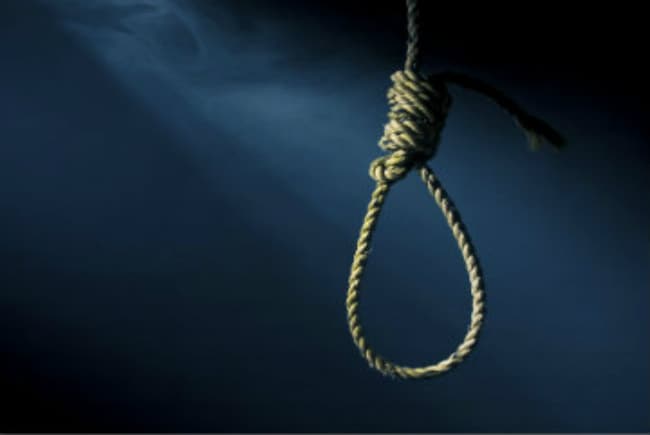
Representational Image
United Nations:
UN human rights experts have welcomed recommendations made by India's Law Commission to abolish death penalty with the exception of terror offences and called on Indian authorities to move towards the complete abolition of capital punishment.
"The conclusions and recommendations of the Indian Law Commission represent an important voice in favour of the abolition of the death penalty in India," Special Rapporteur on extra-judicial, summary or arbitrary executions, Christof Heyns said.
"I encourage the Indian authorities to implement these recommendations and to move towards the complete abolition of the death penalty for all offences," he added.
The Indian Law Commission issued its report on August 31, concluding that the death penalty does not serve as a deterrent and recommended its abolition for all crimes, except terrorism-related offences and waging war.
The Commission had been tasked by the Supreme Court to study the issue of the death penalty in India.
In its report, the Indian Law Commission recognised that, while on death row, the prisoner "suffers from extreme agony, anxiety and debilitating fear arising out of an imminent yet uncertain execution," and that "the death row phenomenon is compounded by the degrading and oppressive effects of conditions of imprisonment imposed on the convict, including solitary confinement".
The recommendation by the 9-member panel was, however, not unanimous, with one full-time member and two government representatives dissenting and supporting retention of capital punishment.
Special Rapporteur on torture Juan Mendez said the Indian authorities should review the findings very carefully and ratify the law.
The experts also welcomed the decision to reduce the number of crimes subject to death penalty by China.
China amended several provisions of its Criminal Law, replacing death penalty with life imprisonment for several offences, including smuggling of weapons, ammunition, nuclear materials and counterfeit currency; obstruction of duty of police; and creating rumours during wartime.
"By adopting these amendments to its criminal code, China has made progress in the right direction; this needs to be encouraged," the UN experts noted.
"These new developments in India and China are in line with the general trend towards the abolition of the death penalty at a global level, even if there are isolated moves in the opposite direction," Mr Heyns said.
Special rapporteurs are appointed by the Geneva-based UN Human Rights Council to examine and report back on a country situation or a specific human rights theme.
"The conclusions and recommendations of the Indian Law Commission represent an important voice in favour of the abolition of the death penalty in India," Special Rapporteur on extra-judicial, summary or arbitrary executions, Christof Heyns said.
"I encourage the Indian authorities to implement these recommendations and to move towards the complete abolition of the death penalty for all offences," he added.
The Indian Law Commission issued its report on August 31, concluding that the death penalty does not serve as a deterrent and recommended its abolition for all crimes, except terrorism-related offences and waging war.
The Commission had been tasked by the Supreme Court to study the issue of the death penalty in India.
In its report, the Indian Law Commission recognised that, while on death row, the prisoner "suffers from extreme agony, anxiety and debilitating fear arising out of an imminent yet uncertain execution," and that "the death row phenomenon is compounded by the degrading and oppressive effects of conditions of imprisonment imposed on the convict, including solitary confinement".
The recommendation by the 9-member panel was, however, not unanimous, with one full-time member and two government representatives dissenting and supporting retention of capital punishment.
Special Rapporteur on torture Juan Mendez said the Indian authorities should review the findings very carefully and ratify the law.
The experts also welcomed the decision to reduce the number of crimes subject to death penalty by China.
China amended several provisions of its Criminal Law, replacing death penalty with life imprisonment for several offences, including smuggling of weapons, ammunition, nuclear materials and counterfeit currency; obstruction of duty of police; and creating rumours during wartime.
"By adopting these amendments to its criminal code, China has made progress in the right direction; this needs to be encouraged," the UN experts noted.
"These new developments in India and China are in line with the general trend towards the abolition of the death penalty at a global level, even if there are isolated moves in the opposite direction," Mr Heyns said.
Special rapporteurs are appointed by the Geneva-based UN Human Rights Council to examine and report back on a country situation or a specific human rights theme.
Track Latest News Live on NDTV.com and get news updates from India and around the world

